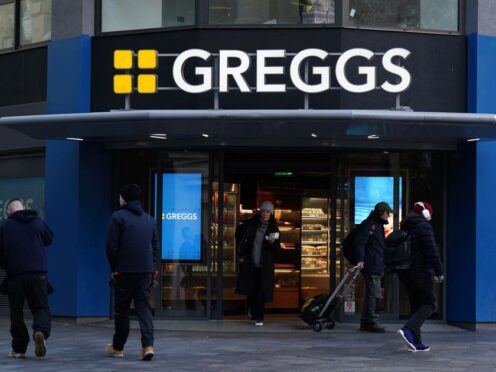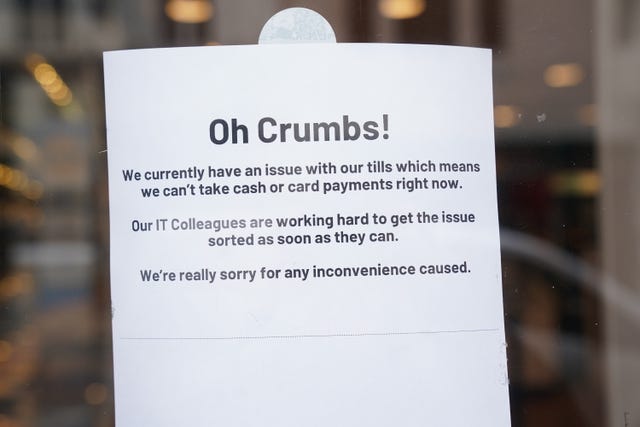
Technical issues which crippled card payment systems and left large retailers including Greggs unable to provide services highlight the risks of an increasingly “cashless” society, experts have said.
On Wednesday morning, Greggs outlets in major cities including London, Glasgow and Manchester could only accept cash payments or had to temporarily close following an IT glitch affecting tills, which the bakery said has now been resolved.
Customers trying to make contactless card payments at Sainsbury’s stores across the UK on Saturday were unable to after the supermarket experienced IT outages which also halted some home delivery orders.
On Friday, McDonald’s, which has some 1,300 branches in the UK, suffered a “global technology system outage” leaving some customers unable to order.
We're sorry if you weren't able to enjoy your usual Greggs earlier.
We’ve resolved the technical issue and our shops are open as usual.
Bring on the Sausage Rolls…
— Greggs (@GreggsOfficial) March 20, 2024
“One of the key takeaways will be to review the robust back-up systems these retailers have got in place,” said Jenni Matthews, head of marketing and insights at MRI Software.
She added that many people no longer use cash and rely on contactless payments for day-to-day shopping.
“We’re in a day and age where we rely on technology so heavily,” she said.
“Many of us go out with just a phone, in the hope that we can buy a pint of milk or some lunch using contactless payment.”
Ms Matthews added that cash usage increased by the end of 2023, as it allowed people to “budget a lot more effectively” during the cost-of-living crisis, but retailers are increasingly relying on IT systems for payments that are not “robust enough”.
In 2022, card payments made up 90% of retail spending and racked up £1.3 billion in vendor processing fees, according to the British Retail Consortium.
Andrew Martin, founder of financial technology company SMEB, said the outages “shone a fresh light on the continued importance of cash in today’s society”.
“It is the latest sign that the march to a completely cashless society is a bad idea,” he added.

Adam Pilton, a cyber security consultant at CyberSmart, said the IT outages “should act as a reminder to us in our personal lives and within our business lives of the dependence we place upon technology”.
There is no evidence the technical problems in recent days were caused by cyber attacks – McDonald’s said its global outage was caused by a “third-party provider”.
But Mr Pilton, who has investigated cybercrime as a former detective sergeant at Dorset Police, said hungry customers were the least of retailers’ worries.
“The implications of a ransomware attack could have similar consequences to daily operations and is something every business should be preparing for,” he added.

Enjoy the convenience of having The Sunday Post delivered as a digital ePaper straight to your smartphone, tablet or computer.
Subscribe for only £5.49 a month and enjoy all the benefits of the printed paper as a digital replica.
Subscribe